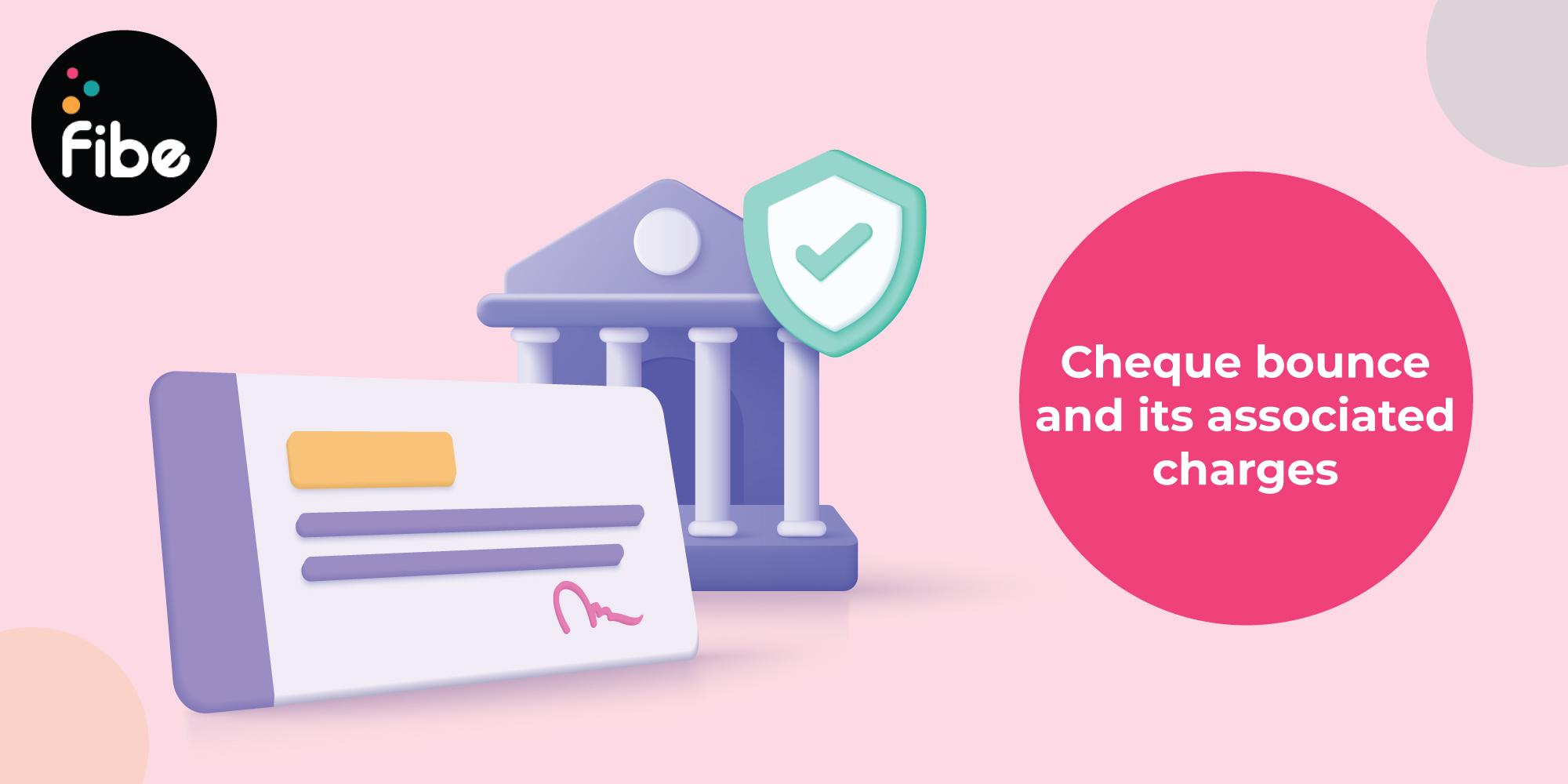What is a Cheque Bounce? Causes and Prevention Tips
Reviewed by: Fibe Research Team
- Updated on: 24 Mar 2025
Reviewed by: Fibe Research Team

Under the Negotiable Instruments Act of 1881, cheque bounce is categorised as an offensive act. If your cheque bounces for any reason, you must face consequences such as monetary penalties, imprisonment or both. It can also impact your credibility and lead to other such negative effects.
Read on to learn about the meaning of cheque bounce, its reasons and the charges.
A cheque bounce happens when a cheque payment fails due to reasons like insufficient funds, signature mismatch or an expired cheque. The meaning of cheque bounce is that the bank cannot process the payment, causing the cheque to be returned unpaid. A cheque is a written promise from the payer (the person issuing it) to the payee (the person receiving it) but if it doesn’t go through, it results in a cheque return or cheque bounce.
Here are some important points to know:
Check out the various reasons that can lead to a bounced cheque:
A cheque can return or bounce if your account needs more funds. Since it is an offence according to the Negotiable Instrument Act of 1881, it attracts a penalty. Besides the monetary penalty, it can also lead to imprisonment for some years.
The date mentioned on a cheque states its validity. If you present a cheque to a bank for payment after its expiration date, the cheque will be returned.
Another reason for cheque return is damaged or disfigured cheques. The financial institution may return your cheque if it is torn or folded or if the written details are not visible. To avoid these circumstances, try not to fold the cheque and keep it safe from damage.
The payer can request the financial institution to stop payment on the cheque. The bank will return the cheque in such a case.
A financial institution can also return a cheque if the information, like the account number or the signature, doesn’t match their records. It creates concerns about the authenticity of the cheque, and therefore, the bank will return it.
Here are the consequences of a cheque bounce:
Here are the cheque bounce charges levied by top financial institutions:
| Bank | Charges |
|---|---|
| Axis Bank | Cheques deposited for local clearing at the home branch: ₹500 |
| Bank of Baroda | Inward Return: Up to ₹1 lakh: ₹150Above ₹1 lakh to less than ₹1 crore: ₹250More than ₹1 crore: ₹500 Outward Return:Up to ₹1 lakh: ₹250Above ₹1 lakh to less than ₹1 crore: ₹500More than ₹1 crore: ₹750 Technical Reason: NIL |
| HDFC Bank | Insufficient Funds:1st- ₹450 for regular citizens and ₹400 for senior citizens2nd- ₹500 for regular citizens and ₹450 for senior citizens3rd onwards- ₹550 for regular citizens and ₹500 for senior citizens Funds Transfer Cheque Return:₹350 for regular citizens and ₹315 for senior citizens Technical Reason: ₹50 for regular citizens and ₹45 for senior citizens |
| SBI | Cheques returned unpaid by others (outstation/ local):Up to ₹1 lakh: ₹150 + GST Above ₹1 lakh: ₹250 + GST Cheques drawn to SBI returned due to inadequate funds: For PB & TBU customers: ₹500 + GST (irrespective of the amount)For SME Customers: ₹500 + GST (irrespective of the amount) for the first 3 cheque returns and ₹1,000 + GST from 4th cheque return onwards Cheque drawn to SBI was returned due to technical reasons: ₹150 + GST (No charges if the customer isn’t at fault) |
| ICICI Bank | Outward Return:₹200 (financial reasons) Inward Return:₹500 (financial reasons)₹50 (non-financial reasons except verification of signatures) |
Note that the above charges are subject to change at the bank’s discretion.
Now that you know the meaning of cheque bounce and the reasons for it, take proactive steps to avoid it. This helps avoid any unnecessary financial liabilities and other severe consequences. In case your cheque bounces and you require funds to bridge your monetary gaps, get an Instant Personal Loan from Fibe.
You can get a loan of up to ₹5 lakhs instantly at affordable interest rates with easy-to-meet eligibility criteria and minimal documentation. To get your hands on the funds with ease, download the Personal Loan App or log in to our website!
Here’s how you can steer clear of these charges:
The payee also needs to pay cheque bounce charges in case of:
Note that this may vary depending on the bank.
Yes, you can get bail in a cheque bounce case.
Here’s what happens in such cases:
The person who issues the cheque is responsible for paying the penalty charges for a cheque bounce. In some cases, both the parties need to pay the charges.